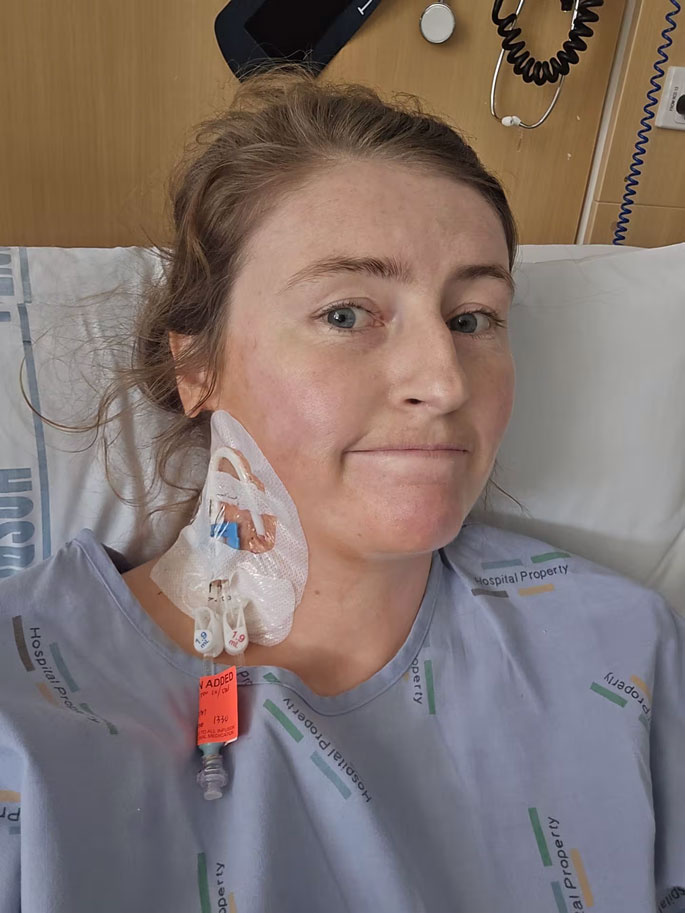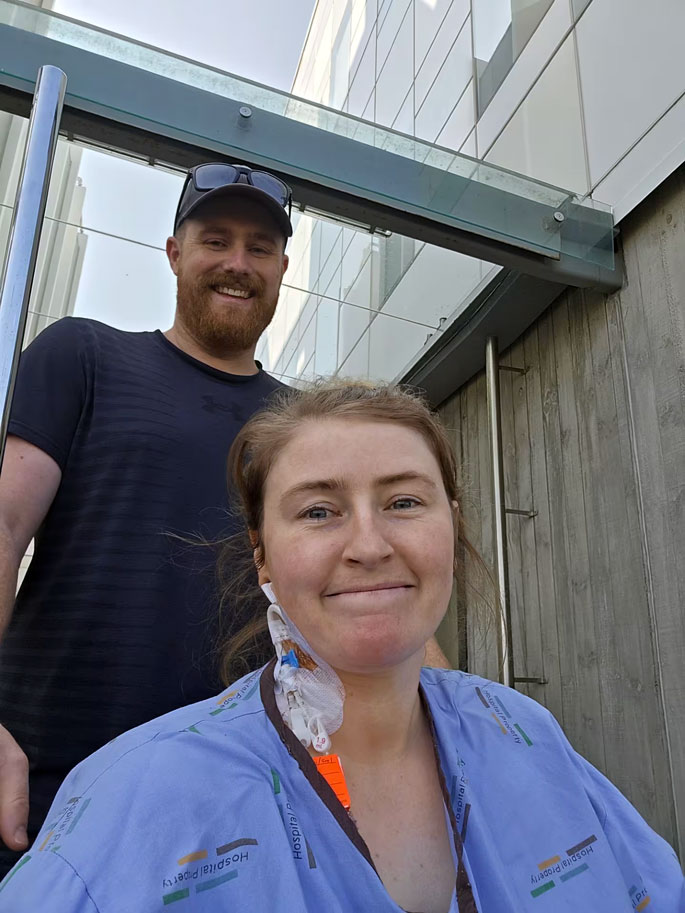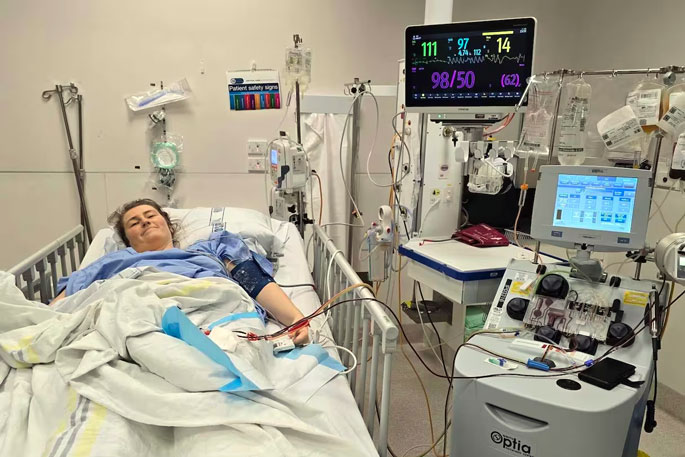Rotorua woman Megan Rumble says she would not be alive if not for the more than 111 bags of donated plasma she has received in a week.
The 27-year-old has been diagnosed with an “extremely rare” blood disorder called Thrombotic Thrombocytopenic Purpura (TTP), which can be treated by plasma exchange.
Now, Rumble wants to create awareness about how “vital” it is for people to donate plasma.
“Without the plasma treatment that I had this week, I wouldn’t have made it.”
The Thrombosis Australia website says the rare blood disorder can be fatal as it affects the blood flow to essential organs such as the brain and heart.
If left untreated, the mortality rate is 90% however, modern management and treatment had reduced this to 10%, it said.
The condition means blood clots develop in small vessels and there is more need for platelets –cells needed for blood clotting.
Research estimates there are 1.5-6 cases of TPP per million people each year.
Bruises ‘everywhere’
On September 17, Rumble called her GP after counting 27 unexplainable bruises “everywhere” on her body.
She also had a rash on her lower legs and blood in her urine.
Rumble was referred for urgent blood tests and booked a GP appointment for that afternoon to discuss the results.
Her GP told her to go straight to Rotorua Hospital because she had a platelet level of 18.
A “normal” platelet level should be between 150 and 400, Rumble said.
From then, she was “in and out” of Rotorua Hospital for a week and getting daily blood tests as staff consulted with the haematology team at Waikato Hospital to figure out what was wrong.
Rumble said she had a “dangerously low” platelet level and was transferred to Waikato Hospital on September 23, where she has been since.
 Megan Rumble had a vascath fitted on her neck for her plasma exchanges.
Megan Rumble had a vascath fitted on her neck for her plasma exchanges.
She said her TPP diagnosis was confirmed at Waikato Hospital.
Rumble explained the condition meant her body attacked an enzyme called ADAMTS13.
“Everything gets all confused where your blood clots where it shouldn’t clot, and it uses up all your platelets to the point where you end up with very, very little platelets doing what they should.”
After being admitted to Waikato Hospital, Rumble had an “emergency plasma” transfusion as her platelet level had dropped below 10.
Rumble has had plasma transfusions daily to increase her platelet level.
 Megan Rumble and her partner, Harry Haywood, who has been an "amazing support" since she was admitted to hospital.
Megan Rumble and her partner, Harry Haywood, who has been an "amazing support" since she was admitted to hospital.
She said she was grateful to have received a “huge” amount of plasma - more than 111 bags in one week.
An average plasma donor would donate about three to five bags per donation, she said.
“I’ve definitely gone through a good chunk of our country’s plasma donations in the last week.”
On Monday, her platelet level was 277, she said.
‘I should go back to living a fairly normal life’
Rumble said the next step was monitoring to see if her body could maintain those platelets, then starting an intravenous treatment intended to stop her immune system from attacking the ADAMTS13 enzyme.
It would an ongoing treatment, starting with a minimum of once a week for four weeks, she said.
If everything went to plan, she should be back in Rotorua in a week, she said.
Rumble said for the first year or two, her body would be in “maintenance mode” with monitoring and blood tests.
Once it was under control, “I should go back to living a fairly normal life.”
Rumble lives with her partner, Harry Haywood. A Givealittle page has been set up for the couple as Haywood is driving to Hamilton daily to be with her in hospital. Both of them have not worked since she was admitted to hospital two weeks ago.
She said they both had “very little” sick and annual leave and it may still be a few weeks before she could return to full-time work.
The money raised would help relieve the couple’s financial pressure, she said.
Donating plasma
- Plasma donations can treat up to 50 illnesses and make 11 lifesaving treatments.
- It can be donated more frequently than blood, every 2 weeks.
- It can be donated in between donating blood.
- A plasma donation can take up to 90 minutes including registration and recovery. The time on the bed can take about 45 to 60 minutes.
- Blood is taken and separated into plasma and red blood cells by a special apheresis machine. The red blood cells are returned to your body and the plasma is collected in a sterile bag.
- Eligible donors can book in to make a plasma donation via the NZ Blood website.



0 comments
Leave a Comment
You must be logged in to make a comment.